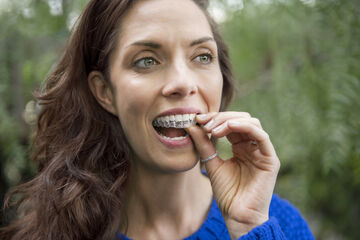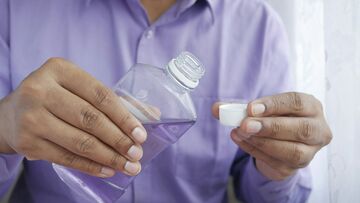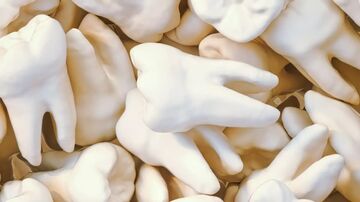
If you are in a dental emergency you should call your dental practice. If you are registered with us call Leigh Dental Centre on 01702 472 929 to arrange an appointment immediately.
What do you do when you have a Dental Emergency?
The first thing you should do in an dental emergency is call your dental practice, if you are registered with us call Leigh Dental Centre on 01702 472 929 to arrange an appointment immediately.
If it is during the week most dentists will have emergency appointments available each day and so should be able to see you quickly. If you have a problem out of hours still ring your dentist’s number and there should be a message explaining the procedure for out-of-hours treatment. This may involve ringing another number or going through a central emergency triage centre.
You may need an emergency dental treatment if you have;
Bleeding after tooth extraction which you cannot control
If you are taking blood-thinning medications such as Warfarin or Aspirin there is the potential that following an extraction the blood may not clot properly and the socket may continue to bleed. If this is the case it may be necessary for a couple of sutures to be put in place to hold the socket together and allow for the gum to heal.
There is also the potential if the blood does not clot for infection to get into the socket. If this happens it can be extremely painful and may smell quite unpleasant. In this case, the dentist will need to clean the socket out and put an antibacterial dressing in place. You will be advised on the best ways to clean the socket to prevent any further infection.
Trauma of the face, mouth or teeth after a recent accident or injury
If at any time you receive direct trauma to your face, mouth or teeth, there is the potential for damage to occur. It is possible for teeth to become loose, crack or chip, if this is the case it is advisable to see your dentist as soon as possible so a full assessment can be carried out.
Toothache or swelling that suggests an infection of a tooth or gum
This is the most common cause of a dental emergency and is most often caused by an infection in the tooth or gum.
A permanent tooth being knocked out.
If a permanent tooth is knocked out by direct force it may still be possible to reposition the tooth. Where possible replace the tooth in the socket immediately and seek dental treatment straight away. If there is the potential for the tooth to be swallowed, keep it in a container of body-temperature milk. Ensure that the milk is not cold, if it is this will shock the tooth and make it unviable.
Other Dental Emergencies;
• Severe toothache or facial pain which is not controlled by taking over-the-counter painkillers
• Severe inflammation of the mouth or face which is getting worse
Our experienced dentist can deal with most emergency treatments in one appointment. However, if more than one visit is required we will arrange a follow-up visit immediately for you.
Out-Of-Hours Dental Emergencies
If you have a problem out of hours please still call the surgery on 01702 472 929 and there will be a message on the answer phone of how you can receive emergency treatment.
Denplan Patients
All our Denplan patients have this service covered under their Denplan Supplementary insurance. For Private patients, there will be a call-out charge and any treatment charged on top of this.
For Denplan patients who are away from home. Please contact the Denplan Emergency line on 0800 844999 if within the UK or +44(0)1962 844999 if abroad. Denplan will then help to find you a suitable dentist within the local area to help you.
Top Dental Emergency Questions Answered
What is classed as a dental emergency?
Dental emergencies can be split into two main groups.
Visible damage to teeth
Teeth can be chipped, cracked or knocked out, crowns can fall out and fillings can be lost. It can happen while you are playing a sport, on a trip or fall or by biting down on something hard such as a nut or something sticky such as toffee.
Pain
Dental pain may be caused by an infection in the tooth or gum or by a cavity or decay exposing the sensitive dentin of the tooth.
How do I treat a toothache?
If you are suffering from a toothache, rinse your mouth out with warm water. Using interdental cleaning aids, clean between your teeth to remove any trapped food. A cold compress placed on the cheek at the side of the toothache can help to reduce the pain as an over-the-counter pain killer.
What do I do if I knock a tooth out?
If a permanent tooth is knocked out by force, with a trip or a fall, it is important that it is replaced into the socket as soon as possible. If the tooth cannot be replaced, keep it within a container of body-temperature milk until dental help can be sought. It is important that you get to a dentist as quickly as possible, the best results are seen when a tooth is replaced into the socket within an hour of the accident.
What do I do if I crack or chip a tooth or lose a filling?
If you crack or chip a tooth, rinse your mouth to remove any remaining loose fragments of teeth preventing you from swallowing them. It is possible to use sugar-free chewing gum to fill the gap caused by a lost filling or chipped tooth as a temporary measure until you can get to an appointment with your dentist.
What do I do if I have a dental emergency over the festive period?
If have a dental emergency over the festive period please ring the surgery on 01296 712264 and the answerphone message will give you details on how to access emergency treatment.
Leigh Dental Centre is open as normal in the week leading up to Christmas. If you have a dental emergency in the days preceding Christmas, please contact the surgery on 01296 712264 and we will endeavour to book you in for treatment as quickly as possible.
Contact us to make an appointment
Exclusive Offer
Airflow stain removal from our hygienist
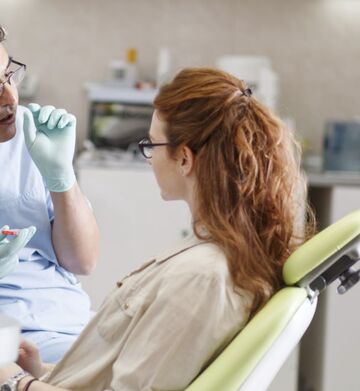
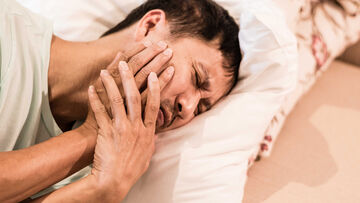
How can Botox be used to treat bruxism?
15.11.2023
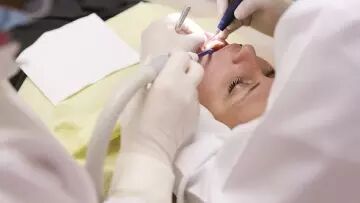
Replacement for a Missing Tooth
04.11.2023
Time for you perfect smile?
Book your consultation today
When visiting our practice you know you are visiting the dental professionals trained to the highest standards. You are greeted by our welcoming staff, who share the same aim, to make your visit with us as comfortable and stress free as possible.
